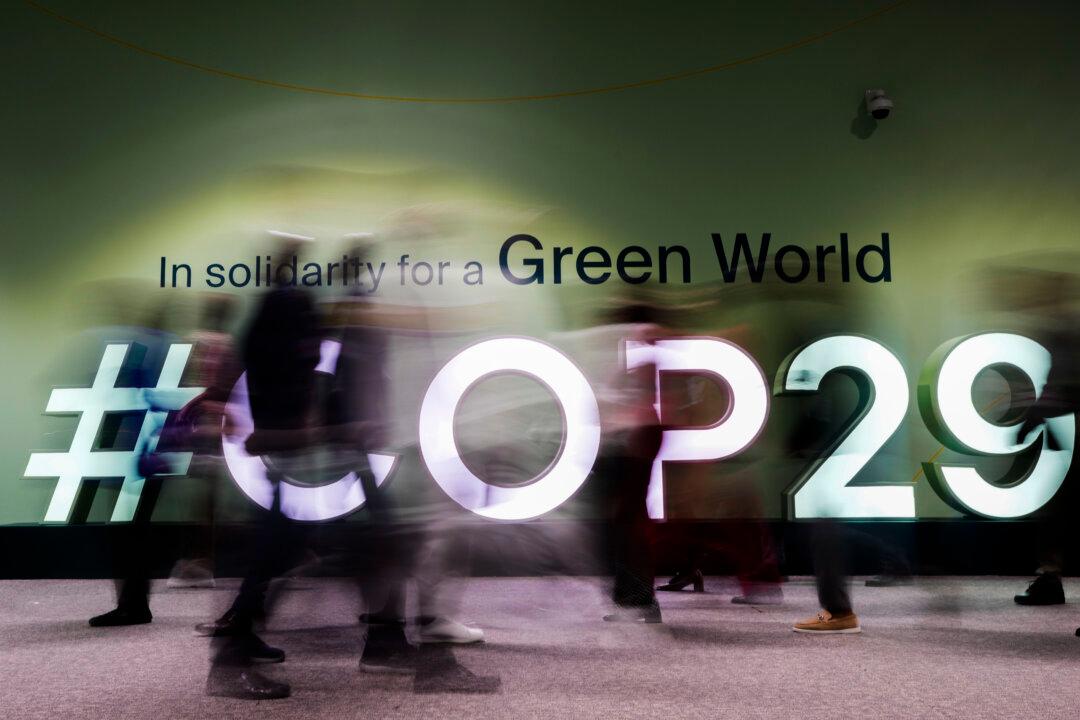The world’s top multilateral banks want to increase climate finance to low- and middle-income countries to $120 billion a year by 2030.
Climate Finance
High on the agenda at COP 29 is the deal to provide up to $1 trillion in annual climate finance for developing countries. U.N. Climate Change Executive Secretary Simon Stiell has urged leaders to “reform the global financial system.”MDBs provide financial support to developing countries to help them strengthen economic management, reduce poverty, and, increasingly, advance climate action.
Nadia Calvino, president of the European Investment Bank, said she wanted to fund “major breakthrough technologies.”
‘Bureaucratic Nightmare’
Despite ambitious funding goals, a critic argued that the EU’s own climate finance plans relied heavily on central planning, which he said was unlikely to deliver real economic transformation.Richard Schenk, a research fellow and net-zero spokesman at the think tank MCC Brussels, told The Epoch Times he was skeptical about the EU’s broader plans to finance the green transition.
“Much of it is actually supposed to come from the European Investment Bank, which is supposedly ready to finance everything climate-related,” Schenk said.
He noted that the EU plans to invest 1 trillion euros ($1.05 trillion) in climate-related projects in the EU by 2030.
“But the reality is that even if these numbers were true, they would not be enough to transform the economy into a net-zero economy at all, and they are aware of this. This is why they are coming up with more and more ideas to get more and more money,” he said.
“The EU has already created a taxonomy directive that classifies economic activities into green and non-green activities.
“For example, if a company is producing hydrogen, then it has preferential access to bank loans at a lower interest rate.
“They allocate resources to these companies, and they are basically meddling directly with the production factors of companies. So this is very, very central-planning-like. But at the same time, this is precisely why this scale doesn’t work—it’s so bureaucratic.
“When you think about this, many companies are actually engaged in both green and non-green activities, so how do you separate it? [...] It’s a bureaucratic nightmare.”
The Epoch Times contacted the EU Commission for comment but received no replies by publication time.







